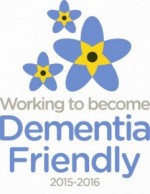Exciting announcement – New dietetic service
Good nutrition is the basis of a healthy lifestyle. It is the foundation that feeds your body and mind. It protects you against many non-communicable diseases such as heart disease, diabetes and cancer.
Whatever your health concerns, diet and lifestyle change can be an effective treatment that provides lasting benefits. We as consumers are being much more aware of the food we eat and how it affects our health. However, there is so much unreliable and conflicting information that can be found on the internet and via social media that it can be confusing and difficult to separate fact from fiction.
We are really excited to announce that we now have a registered dietitian working within the network that can help you with your dietary needs and hopefully dispel some of those “dieting myths” and help to signpost you to the appropriate support.
Charlotte Raine
Charlotte is a Registered Dietitian based at the Student Health Centre. She has experience working with a variety of age groups, conditions and settings within the NHS. Charlotte specialises in eating disorders and disordered eating in adults.
Patient feedback
If you have seen a Dietitian recently, we would appreciate your feedback to help us to continue to develop the service.
What does a dietitian do?
Dietitians are qualified and regulated health professionals that assess, diagnose and treat dietary and nutritional problems at an individual and wider public-health level.
They use the most up-to-date public health and scientific research on food, health and disease which they translate into practical guidance to enable people to make appropriate lifestyle and food choices.
Dietitians are the only nutrition professionals to be regulated by law, and are governed by an ethical code to ensure that they always work to the highest standards. Dietitians are educated to degree standard and are registered with the Health and Care Professions council (HCPC). You can check if your dietitian is registered at www.hcpc-uk.org.
Listen to the video below on more about a dietitian……
Your GP or other healthcare professional might suggest you are referred to a Dietitian.
What types of patients can be seen by a Dietitian?
Dietitians work as integral members of multi-disciplinary teams to treat complex clinical conditions such as diabetes, obesity, cardiovascular disease, food allergy and intolerance, IBS, eating disorders, chronic fatigue, frailty/malnutrition and bowel disorders. Patients can be seen on a one-to-one basis or within a group setting.
What can you expect at an appointment?
Your appointment will typically last approximately 30 to 60 mins. Your dietitian will want to ask you about your lifestyle and eating habits. They may also ask you some questions about your health, home life and other things which can affect your food intake. You might be asked to keep a food and fluid diary for 3 days before your appointment. This information can help you and the dietitian plan small, realistic changes you can make to improve your eating habits and lifestyle.
Your dietitian will assess how often you will need to be reviewed to enable you to continue making positive dietary changes.
How to book an appointment with a dietitian
You should speak to your GP or other health professional about making a referral to the Dietitian.
Helpful websites
Below are some links to really useful websites where you can access free dietary resources:
NHS Patient webinars: webinars by Registered Dietitians on a range of conditions:
British Dietetic Association (BDA) Food Fact Sheets: accurate and reliable dietary resources on a variety of topics:
Centre for Clinical Interventions (disordered eating & eating disorders): see ‘information sheets’ for topics relating to nutrition. Self-help guides and resources also available.
Beat: Leading UK Eating Disorder Charity- helplines, chatrooms and resources for people experiencing eating disorders and those supporting them
www.beateatingdisorders.org.uk
FREED: Early intervention eating disorder resources (see ‘Helpful Guides – Eating with Confidence’ and example healthy eating meal plans)
www.freedfromed.co.uk/freed-for-all
Diabetes UK: leading UK charity for people living with diabetes (see ‘eating with diabetes’ section for meal plans, recipe ideas and dietary guidance)


